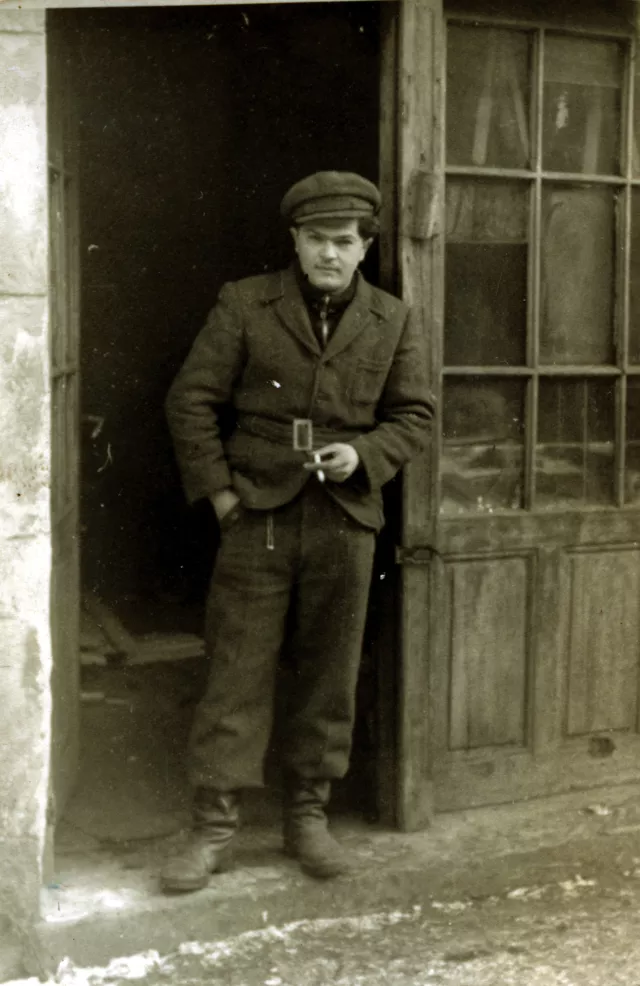Mordohai Konorti
This is my brother, Mordohai. He was a brush-maker and he had a shop on Pozitano Street. The photo was taken shortly before he left for Israel. He was born on June 9, 1923, the day of the coup d'etat that overthrew the prime minister. The blockade at that time was so strict that when my mother was in labor, soldiers came to verify that my mother really needed a midwife before they would let her come to our house.
My ancestors came from Spain two centuries ago. They belong to the Sephardi settlers' group that came to the Balkan Peninsula in the 18th century.
My father was a soldier during World War I. He was born in 1900 and went to the front when he was 17. He was a captive in Italy for a year and a half. That is where he learned a little Italian. He also spoke Ladino, Hebrew and Bulgarian. My father loved to sing, and he really sang very well. He, my brother and I used to sit on the bed in the bedroom on Sundays and sing songs from songbooks. My father sang songs in Ladino. The texts were very romantic. I was 15 when he fell ill. He was bedridden for a year and a half. He died of cancer in 1947 in Sofia.
My brother and my mother went to Israel in 1949. It was very hard for Mordohai in the beginning because he did not know the language. I stayed in Bulgaria. I married Josif Kamhi. We met in 1943 when we were interned in Kiustendil. I approved of my relatives going to Israel. I also wanted to go there, but my husband insisted on staying here. His brother had died as a partisan and his mother had died in a concentration camp, so he didn't want to part with his sister.
After the war, I worked in dressmaking factories. My husband studied in the mechanical and electrical technical institute in Sofia and became an electrical engineer. Life was calm in the 1950s. Our salaries, homes and work became more secure. That is why I value that period so much. After the political changes in Bulgaria in 1989, life became harder for my family. Everything we had built and fought for started to fall apart. I value Eastern Europe's opening to the world. History goes on. We had capitalism, then socialism, and now a democracy. Life goes forward, and that is how it should be. Changes are natural, but they are very hard for us.






























